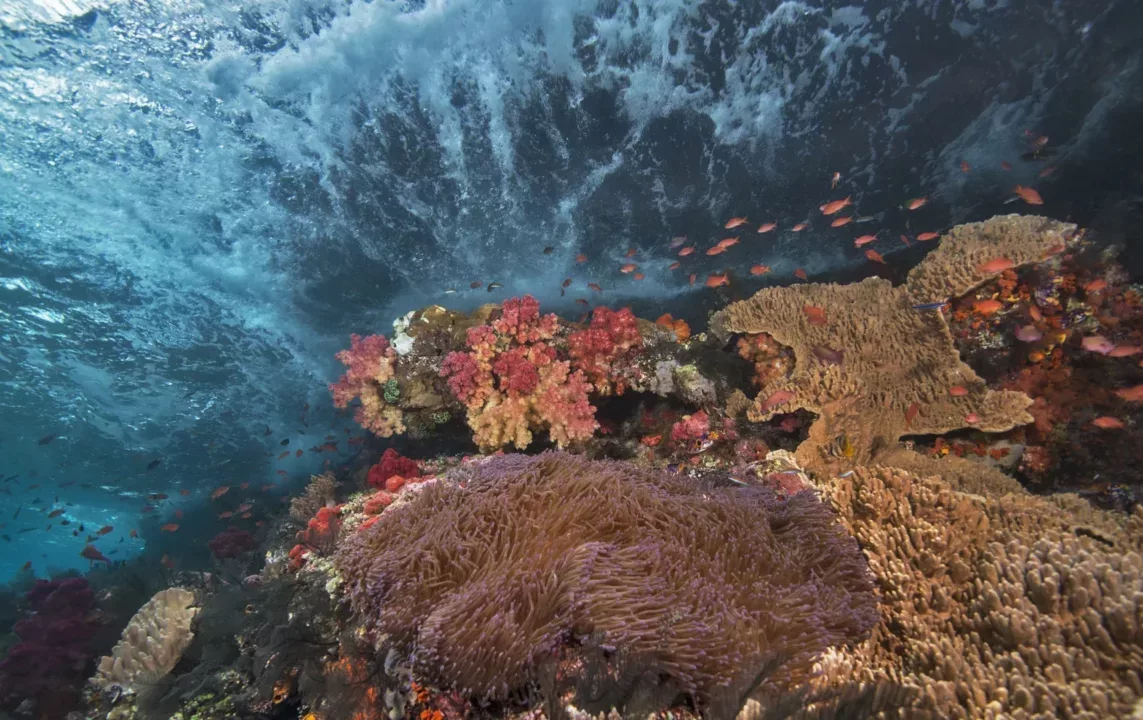The Khaled bin Sultan Living Oceans Foundation has released the Global Reef Expedition: New Caledonia Final Report. The report contains an assessment of the health and resiliency of coral reefs in New Caledonia along with recommendations for preserving these reefs into the future.
On the Global Reef Expedition—the largest coral reef survey and mapping expedition in history—the Khaled bin Sultan Living Oceans Foundation worked closely with local partners, government officials, and scientists from around the world to study remote coral reefs in New Caledonia. In 2013, they spent a month at sea, conducting over 1,000 standardized surveys of coral reefs and reef fish and collecting data to create benthic habitat and bathymetric maps for 2,600 square kilometers of shallow-water marine habitats in New Caledonia.
The report contains valuable information on the status of coral reefs and reef fish in the Entrecasteaux Atolls, Cook Reef, Ile des Pins, and Prony Bay. The surveys found the reefs to be in surprisingly good shape at the time, with some of the highest coral cover found on the entire Global Reef Expedition. Reefs far from shore, or protected in Marine Protected Areas (MPAs), were in particularly good condition, but many nearshore reefs showed signs of fishing pressure with few large and commercially valuable fish.
Copies of the Global Reef Expedition: New Caledonia Final Report have been shared with government officials, marine park managers, conservation organizations, and local leaders in New Caledonia. The data in this report can help New Caledonia with ongoing efforts to manage their marine resources, including coral reefs inside one of the largest marine protected areas in the world, le parc naturel de la mer de Corail.
The report can be downloaded in both French and English below.

